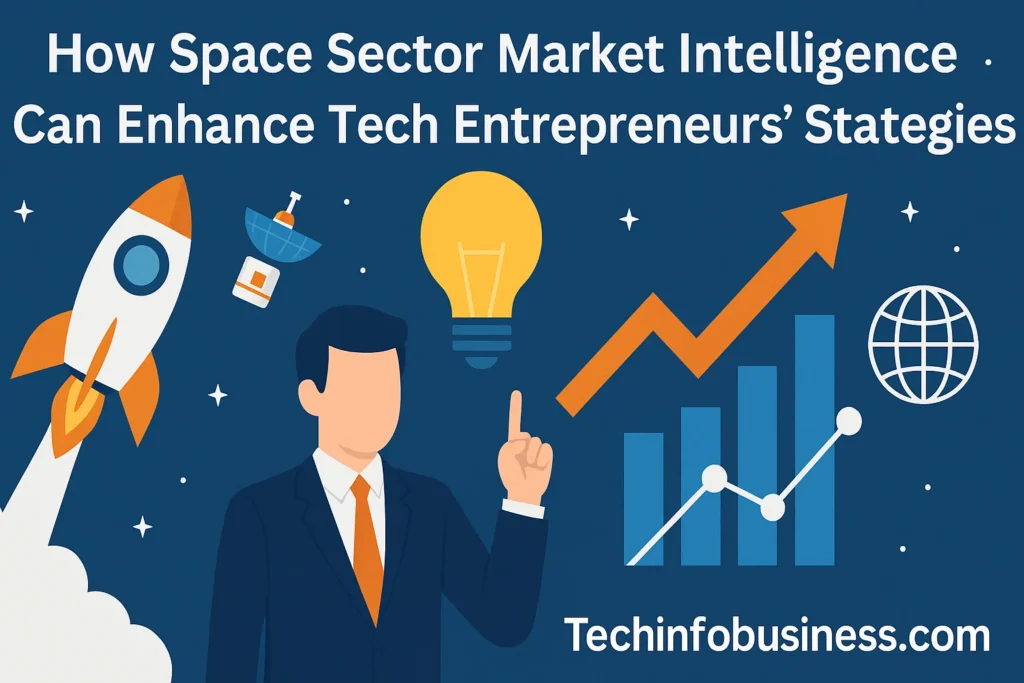The Expanding Frontier of Space and Technology
The space sector is no longer the exclusive realm of government agencies and large aerospace corporations. In recent years, it has opened up to private companies, startups, and entrepreneurs who see immense potential in satellite services, launch systems, and deep-space applications. This shift has created new opportunities for innovation and disruption, but it has also introduced a level of competition and complexity that makes decision-making more challenging. For technology entrepreneurs looking to find their place in this frontier, reliable market intelligence has become a critical resource.
Why Market Intelligence Matters in the Space Industry
Space technologies often evolve at a pace that outstrips traditional business forecasting methods. Trends like reusable rockets, satellite constellations, and space-based communications can change the economics of the industry almost overnight. Entrepreneurs who rely solely on instinct or outdated reports risk falling behind competitors who have better insights into emerging opportunities and risks.
Market intelligence serves as a compass in this unpredictable environment. It helps identify which technologies are gaining traction, which companies are forming partnerships, and where investment capital is flowing. By drawing on accurate, up-to-date analysis, entrepreneurs can avoid blind spots and align their strategies with the realities of the sector.
The Intersection of Data and Entrepreneurial Strategy
For a tech entrepreneur, strategy is about more than having a good idea it’s about timing, positioning, and execution. Market intelligence provides the foundation for these elements. For instance, if data shows that demand for Earth observation satellites is projected to increase, a startup might decide to focus its software development on imagery analytics rather than satellite hardware. Similarly, if intelligence reveals a surge in space cybersecurity concerns, entrepreneurs in the software or hardware security fields can adapt their offerings to meet this rising need.
In this way, market intelligence is not just about knowing what’s happening it’s about turning that knowledge into actionable steps that can shape product design, partnerships, and go-to-market strategies.
The Value of Expert Guidance
While public reports and news articles can provide some insight, specialized guidance is often required to cut through the noise and focus on what matters most. This is where expert-led market research and analysis come in. Entrepreneurs benefit not only from raw data but also from interpretation understanding how trends connect, what competitors are planning, and which opportunities are realistic in the near term.
For many emerging businesses, services like tailored consulting by Space Insider offer the clarity needed to make strategic choices. Instead of guessing where the industry is heading, entrepreneurs gain structured advice rooted in data, allowing them to refine their business models and reduce the risks that come with pioneering in such a complex sector.
Practical Applications for Tech Entrepreneurs
When market intelligence is applied effectively, it enhances every stage of the entrepreneurial journey. In the early phases, it helps with identifying the right entry point whether in hardware, software, or services. During fundraising, it provides entrepreneurs with credible data to show investors, improving the chances of securing capital. Later, it supports scalability by flagging changes in regulation, technology standards, or international competition that could impact growth.
One practical example might involve a startup building applications for satellite connectivity in rural areas. With accurate intelligence, the founders could assess demand curves, evaluate existing competitors, and even predict where government funding for infrastructure will be directed. Another case could be a hardware-focused startup designing small satellite propulsion systems; intelligence could reveal upcoming missions, potential partnerships, or gaps in current offerings, ensuring the company invests in technology that meets genuine demand.
Risk Management and Strategic Foresight
The space industry carries unique risks regulatory hurdles, long development timelines, and dependence on international collaboration. Market intelligence helps entrepreneurs mitigate these risks by providing foresight. Knowing in advance that a certain regulatory framework is likely to shift, or that a competitor has secured funding for a similar project, allows entrepreneurs to pivot early rather than reacting too late.
Strategic foresight is particularly important in the space sector because the stakes are high and the margins for error are slim. A misstep in timing or positioning can result in years of wasted investment. Market intelligence transforms uncertainty into managed risk, making strategic planning far more robust.
The Broader Impact of Market Awareness
Beyond immediate business benefits, entrepreneurs who make use of space sector market intelligence also contribute to the growth of the ecosystem as a whole. By making informed decisions, they are more likely to launch sustainable ventures that attract further investment and inspire additional innovation. In this sense, intelligence-driven entrepreneurship doesn’t just serve individual companies it supports the collective advancement of the industry.
As more players enter the field, competition will drive improvements in efficiency, cost, and technology. But this competition will also make survival more difficult for those without a clear strategy. Entrepreneurs who integrate market intelligence into their decision-making will be the ones best positioned to thrive in this expanding ecosystem.
Conclusion
The rise of private entrepreneurship in the space sector is one of the most exciting and transformative developments of the past decade. What was once a domain reserved for government agencies and aerospace giants has rapidly opened up to innovators, startups, and visionary investors. This democratization of access has unlocked extraordinary opportunities, but it has also introduced layers of competition, regulatory complexity, and technological uncertainty that make the sector both promising and challenging.
For entrepreneurs, enthusiasm and technical expertise alone are no longer enough. To thrive, they need clarity in a field defined by rapid change and high stakes. Market intelligence plays a central role in providing that clarity. It highlights where capital is flowing, which technologies are gaining adoption, and what geopolitical or regulatory shifts could impact growth. By understanding these signals, entrepreneurs can identify opportunities early, reduce risks, and build strategies that are not only innovative but also sustainable in the long term.
In this way, data-driven insights act as a bridge between vision and execution. They help transform big ideas into viable businesses by grounding ambition in evidence and turning uncertainty into actionable direction. With the right intelligence, entrepreneurs are empowered to make bold moves with confidence whether that means launching new satellite constellations, entering the supply chain for reusable rockets, or pioneering applications in deep-space exploration.



